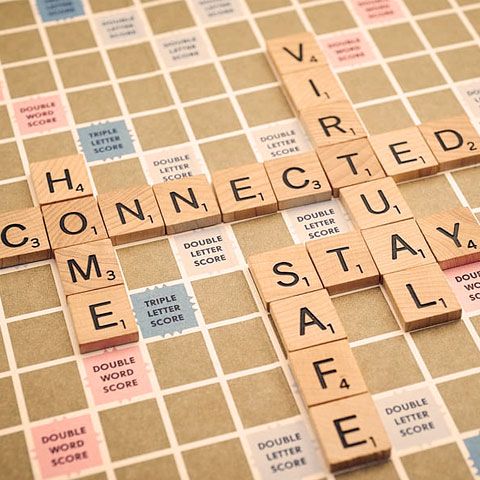
Caregivers are often used to doing it all. They’re care providers, event planners, medication aides, financial resources, advocates, emotional supporters, and the list goes on. It can often feel like you’re also a nurse, pharmacist, activity director, security guard, attorney, lobbyist and CEO when you’re the caregiver of a loved one with dementia. With the stress and uncertainly of the current pandemic upon us, how can a caregiver possibly take on any more roles?
Though easier said than done, we often need to get back to basics. Remember why you decided to become a caregiver in the first place. More often than not, it’s because of a strong connection with your loved one you’re caring for. Rather than stressing over how to fulfill the myriad of roles, the question to focus on now is: how can I stay connected with my loved one?
If your loved one is now home with you 24/7 you may be feeling a little too connected! Doing your best to create good moments each day will go a long way to maintaining your relationship during this stressful time. Keep a daily routine as much as possible, and engage in enjoyable, failure-free activities. Try to avoid constant access to news or endless conversations about coronavirus. Include activities you both love each day, like walks, games, favorite movies, or dancing in the living room! As much as you can, try to make time for yourself too - everyone can use a little down time during the day to recharge! And finally, stay connected to family and friends through phone and video calls. Set up a weekly call with friends to make it a habit and something to look forward to!
If your loved one lives in their own home, not with you, you’re probably asking a lot of questions about care and safety right now on top of making sure you stay connected. First, this is not a time where no news is good news. Call to check in at least daily. Get in touch with neighbors if possible. Send groceries, meals, or care packages to ensure your loved one is getting their basic needs met. You can also coordinate calls from other friends and family. This is not only great for them to stay social, but is also providing more frequent check-ins with your loved one. And listen to your gut, if you think your loved one is struggling at home, you may want to consider hiring home care, especially if you are unable or feel unsafe visiting them in person.
If your loved one lives in a long-term care facility, current lockdown rules may be difficult but necessary for everyone’s health and safety. Staying connected is hard, but possible! Find out the facility’s plan for preventing and managing COVID-19. Ask how they can help you have contact – can they help your loved one with video calls, or delivering photos or recordings? If it’s difficult to keep up conversation by phone, try singing a favorite song, reading a treasured poem, telling a joke, or reminiscing. You may have to do a little trial and error, but try to find a new routine for you. This could include ways to stay connected with your loved one, and also ways for you to recharge. Finally going through your old photos can spark ideas for reminiscing with your loved one, or picking up a new hobby can give you stories to share on your next video call.
Whatever your situation, in these times of uncertainty getting back to the basics can be best. Your connection to your loved one may look a little different, but can still remain strong.
Author
Carrie Idol-Richards is the Director of Communications at Insight Memory Care Center.
Lindsey Vajpeyi is the Director of Education and Outreach at Insight Memory Care Center.




